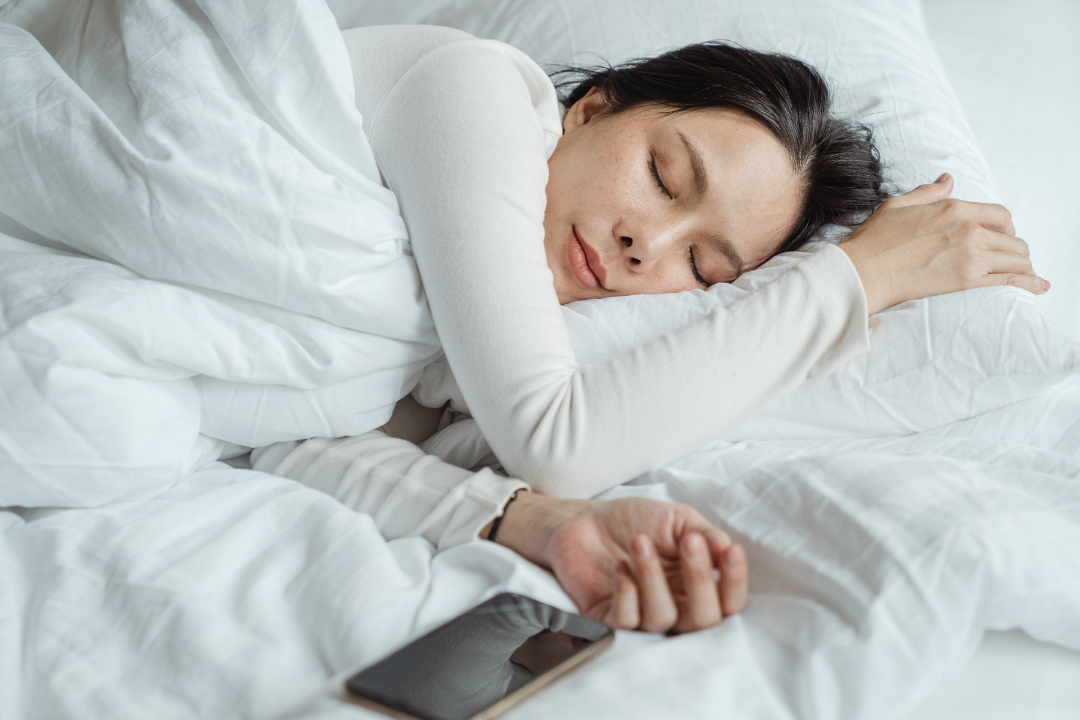I used to think being tired all the time was just part of being an adult. You work all day, you scroll until midnight, maybe squeeze in some late caffeine to push through. Then you crash. That was normal, right?
Except it wasn’t rest. It was survival mode. I didn’t realise how worn down I was until I finally got some proper, consistent sleep—and suddenly, life felt lighter. My mornings were calmer. My moods stopped swinging. I could think straight again.
If you’re where I was—wired at night, foggy in the morning—these small, doable tips for better sleep might shift everything. They’re not magic. But they work.
1. A Wind-Down Ritual Changed Everything
There was a time I’d be tapping out emails at 10 p.m., then brushing my teeth and diving straight into bed—expecting to fall asleep like flicking off a switch.
Spoiler: I didn’t.
My brain needed a buffer. Something that gently whispered, “We’re done now.”
So I started small. A cup of herbal tea. Skincare that felt more like self-care. A dim lamp and a few pages of fiction. No pressure, just softness. Even five minutes of intentional quiet helped my mind shift into a more focused state.
Now, it feels like I’m tucking myself in—with care, not just exhaustion.
2. Beds Are for Sleep (and the Other Thing)
I used to spend hours in bed doing everything but sleeping—watching Netflix, scrolling TikTok, half-heartedly replying to work messages.
And I wondered why I couldn’t settle.
Once I stopped treating my bed like a sofa-desk hybrid, my sleep started to shift. I moved my phone charger out of arm’s reach. I brought a book to bed instead of a screen. I even changed my sheets to something I actually liked curling up in.
Little by little, my brain stopped associating my bed with stimulation—and started connecting it with calm.
3. Make Your Bedroom a Soft Place to Land
I didn’t think temperature mattered until I kept waking up sweaty at 3 a.m. or pulling on an extra hoodie in the middle of the night.
Now, I aim for around 20°C (68°F). Not too cold, not too warm—just cave-like comfort. I bought blackout curtains. Swapped harsh overhead lights for soft bedside ones. Even upgraded my pillow.
It’s not about perfection. It’s about comfort. You want to walk into your room at night and feel your shoulders drop.
That feeling? That’s the body saying, safe now.
4. Blue Light Is a Sleep Saboteur
I used to scroll until my thumb ached—convincing myself I was “unwinding” even as my brain raced with headlines, reels, and WhatsApp replies.
Turns out, blue light messes with melatonin, the hormone that helps us feel sleepy. No wonder I was wired at midnight.
Now I try to go screen-free at least an hour before bed. If I do peek at my phone, it’s in night mode. But honestly? Replacing screen time with a puzzle, playlist, or book has felt more nourishing anyway.
It’s not just about sleep—it’s about protecting your peace.
5. Caffeine Sticks Around Longer Than You Think
I love coffee. Like, really love it. But I didn’t realise my afternoon pick-me-up was still lurking in my system long after sunset.
Now I cut off caffeine by 2 p.m. (even if I feel fine). I’ve also become a label-reader—some decaf drinks, chocolate and teas sneak caffeine in too.
In the evening, I’ve swapped to rooibos or chamomile. Calming, cosy, and part of my wind-down now.
It was hard at first—but feeling truly sleepy at night? Worth it.
6. Move During the Day, Not Right Before Bed
Exercise is magic for my mind. But hitting the gym at 9 p.m.? Not so magical for my sleep.
I used to think movement = tiredness. But it’s more nuanced than that. Now I try to move earlier—morning walks, lunchtime stretches, a bit of yoga mid-afternoon. It’s enough to burn off restlessness without overstimulating my system.
If evenings are your only window, gentler movement works. Think slow stretching, tai chi, or a casual stroll.
Your body doesn’t need to be exhausted. It needs to feel ready.
7. Big Meals and Booze Messed With My Sleep
I’ve lost count of how many times I went to bed feeling bloated—or buzzed—only to wake up groggy and irritable.
Heavy meals and alcohol disrupt sleep more than I ever realised. I now try to eat dinner earlier, and keep late-night snacks light if I need them—maybe some yoghurt or a banana.
As for alcohol, I save it for earlier in the evening or skip it entirely if I want a truly restful night.
My gut and my brain thank me every morning.
What I Know Now That I’m Sleeping Well
Sleep isn’t just about feeling rested—it’s about functioning. It affects everything: mood, memory, immunity, and emotional resilience. When I was in a fog, I didn’t realise how much I was missing.
Now, I treat sleep as a non-negotiable. Not with rigid rules, but with gentle habits that say: I care about how I feel tomorrow.
If your nights have felt rough lately, you don’t need to overhaul everything. Start small. One shift. One ritual. One moment of quiet.
Because once you start sleeping better, the whole day feels different.
